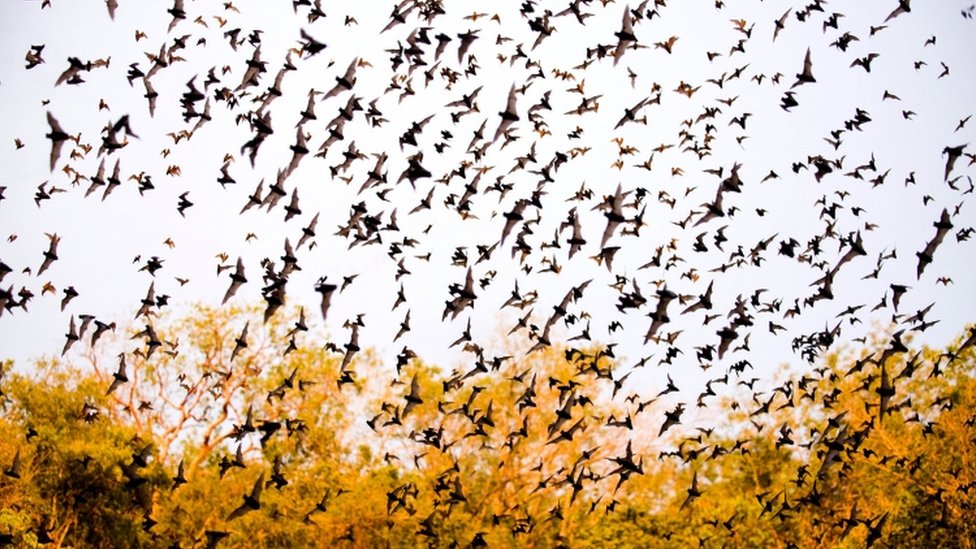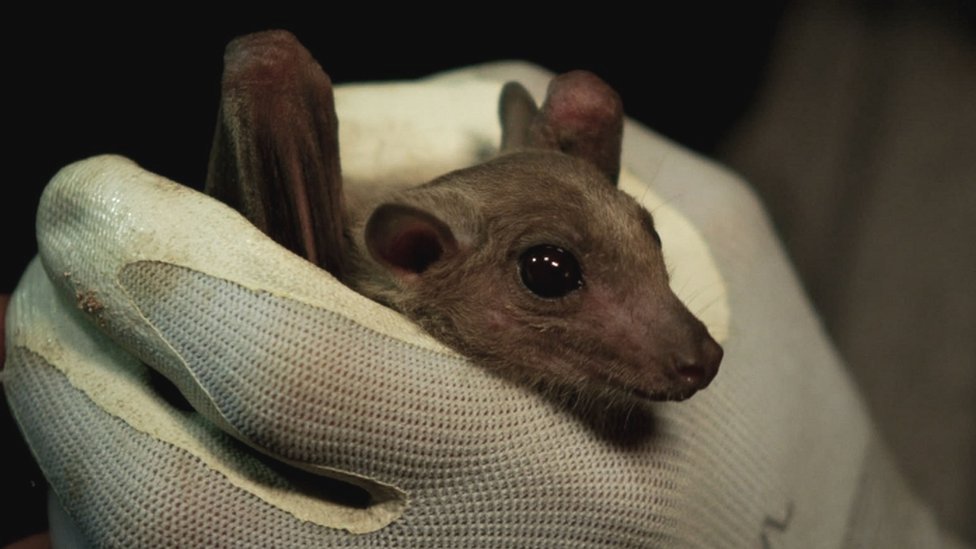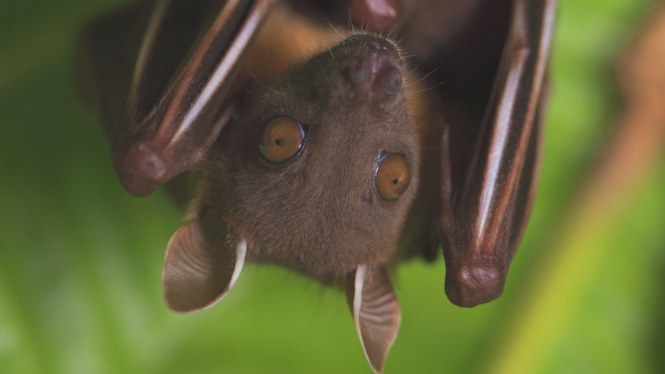Occasionally, Mathieu Bourgarel asks permission from the village elders to visit the sacred caves, while bringing offerings to appease local spirits.
Wearing a face mask, overalls and three layers of gloves, he entered the darkness, down the rope ladder and through the narrow spaces in the cave.
The smell of bats was all over the place, his excrement lay in layers on the floor and he walked as if through a layer of snow.
Sometimes, there are bats that are startled from sleep, and their wings brush close as they fly.
People in this area of Zimbabwe refer to bats as “winged dragons”, “flying mice”, or simply “evil ones”.
As elsewhere in the world, these flying mammals are often misunderstood. To the wildlife ecologist, they are beautiful and extraordinary creatures. “They are amazing,” he said. “People are afraid of the things they don’t know.”
Bourgarel is a virus hunter for the French research institute Cirad. In collaboration with colleagues at the University of Zimbabwe, he went to a bat cave to collect samples and droppings from bats.
In the laboratory, scientists extracted and sequenced the genetic material of viruses carried by bats. They have found a variety of different coronaviruses, including one that is in the same family as Sars and Covid-19.
The research is part of a worldwide effort to investigate the diversity and genetic makeup of viruses carried by bats, and provide the tools to react quickly when people start getting sick.
“Locals often visit this bat habitat, to collect guano which is used as fertilizer for their crops. Therefore, it is important to know the pathogens carried by the bats, because they can be transmitted to humans,” said Elizabeth Gori of the University of Zimbabwe.
Bat experts have launched a campaign, Don`t Blame Bats (Don’t Blame the Bats), to dispel fears and unfounded myths about bats, which threaten conservation.
They say bats are the most misunderstood and underrated animal on the planet.
Long subjected to humiliation, persecution, and cultural prejudice, they have been blamed for a number of crimes against humanity. And the fear and myths about bats are increasing due to Covid.
Facts about bats
- Bats are the only mammals capable of flight
- Insect-eating bats can save US $ 3.7 billion for US farmers each year by reducing crop damage
- More than 500 plant species depend on bats for pollination
- Bats are under threat at an unprecedented rate due to habitat destruction, climate change, hunting and other pressures
Source: Bat Conservation International
The origin of the virus that caused the pandemic is unknown. But most scientists agree that the virus crossed over to humans from animal species, most likely bats.
That doesn’t mean the bats are to blame; it is our increasing interference with wild creatures that is at the root of the problem.
Most of the disease outbreaks that arise can be attributed to human damage to nature. When forests or grasslands are destroyed for livestock, to grow soybeans or to build roads and settlements, wild animals are forced to get closer to humans and livestock, giving the virus a chance to jump.
“There is no denying that bats, like many other animal groups, present a real risk of being a host for a potentially dangerous disease,” said Ricardo Rocha of the University of Porto, Portugal.
But he pointed out that when controlling for the number of bat species (1,400 or more), the number of viruses that infect humans is similar to that of other mammal groups, such as birds, domestic animals and rodents.

Scientists estimate that three out of every four infectious diseases new or emerging in humans come from animals. The warning about this danger came in 2002, when a mysterious disease, Sars, emerged in China, causing nearly 800 people worldwide.
In 2017, researchers identified colonies of horseshoe bats living in remote caves in Yunnan Province that harbor genetic fragments of the human Sars virus. They then warned that a similar disease could reappear, and they were proven right.
However, instead of blaming one species or another, we need to reassess our relationship with nature, Rocha said. He pointed out that bats are essential for healthy ecosystems and human well-being.
Bats suppress the number of insects swarming the plantations. Plants in the tropics rely on it for pollination, including cacao, vanilla and durian. And they are spreading tree seeds found in rainforests, which are helping to fight climate change.

It would have had “dire results” if bats continued to be treated with a bad perception of being evil, because the spread of disease from animals to humans is more about humans encroaching into their territory than the other way around, said David Robertson of the University of Glasgow.
The cause of Covid-19 has likely been circulating in bats for decades, he said, with the ability to also infect other animal species.
There have been separate reports of Covid-related reactions to bats, including actual or intentional killings in Peru, India, Australia, China and Indonesia.
Scientists warn that some misguided actions could have serious consequences for vulnerable bat species and even increase the risk of spreading disease.

“The major concern is that many bat species are threatened with extinction, so even a small incident of misdirected violence can cause irreparable damage and have catastrophic flow effects on the ecosystems humans rely on,” said Douglas MacFarlane of the University of Cambridge.
Bats have lived side by side with humans for centuries, for the common good. In the educational town of Coimbra in Portugal, bats have occupied an 18th Century library for more than 300 years, eating insects that might destroy manuscripts. Visit at dusk and you may see them drifting out of the library windows and swooping down on the steep cobbled streets.
Ricardo Rocha says we have to remember that bats are an integral part of the complex natural web that keeps ecosystems healthy.
“If there is an important message to be learned from this unfortunate moment in history that makes nature sick, makes us sick,” he said.
–


